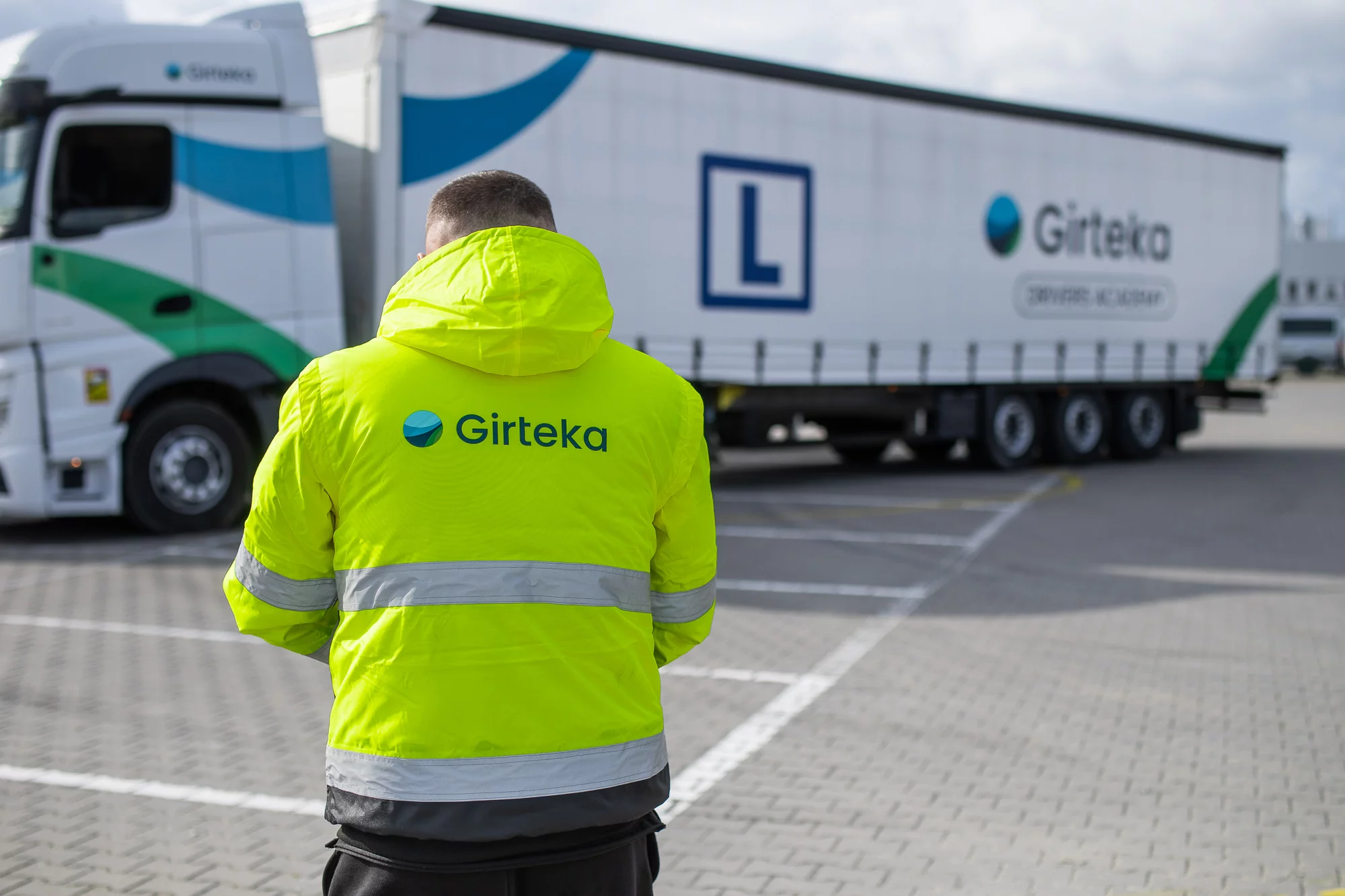Europe is facing a severe truck driver shortage – around 230,000 driver roles remain unfilled, and this gap could grow to as many as 745,000 vacancies in the coming years. This challenge, driven by an aging workforce and low numbers of recruits, threatens the smooth operation of supply chains across the continent. Many large transport companies, like Girteka, have turned to recruiting drivers from outside the EU. However, taking into consideration the needs and requirements of skilled drivers, driving tests are becoming increasingly important.
Driving tests: a key to securing skilled drivers
Comprehensive driving tests assessments are one effective way to ensure that only well-qualified drivers join the workforce. By putting drivers behind the wheel under controlled conditions in their own country, companies can verify that candidates meet the required standards in safety and driving skills.
Driving tests evaluations serve several essential functions. They allow companies to assess how drivers handle real-world conditions, confirm that drivers follow safe practices and check that drivers are comfortable with the digital systems integrated into modern trucks.
Today’s requirements for truck drivers in Europe
Today’s professional truck drivers in the EU must meet specific requirements, including:
· License requirements: Drivers need a C, C1, CE, or C1E license. For example, a C1 license is for lighter trucks (up to 7,500 kg), while a C license is for heavier trucks.
· Code 95: After initial qualification, drivers earn Code 95, which must be renewed every five years through refresher training.
· Mandatory training: EU Directive 2003/59/EC requires a standard level of training, including practical assessments and driving tests, to improve road safety.
· Regulatory compliance: Drivers must follow strict rules regarding driving hours, rest periods, specified in Mobility Package.
Similar systems exist outside Europe. In the United States, drivers must pass a Commercial Driver’s License (CDL) test that covers pre-trip inspections, vehicle control, and on-road evaluations. While the U.S. system focuses on a one-time licensing test, Europe emphasizes continuous training and periodic driving tests assessments.
Industry leaders in driver training and driving tests
Several companies have set the standard by incorporating comprehensive driving tests assessments into their recruitment and training processes.
Girteka’s Driving Academy
Girteka, a market leader in road transport, has established its own Drivers’ Academy with centers in Lithuania and Poland and recruitment branches outside the EU. New drivers – especially those outside the EU – must complete a series of driving tests and practical assessments before coming to Europe. Arystan, a recent recruit from Kazakhstan, explained that “The driving test at Girteka’s academy was eye-opening. It gave me a clear idea of European road conditions and helped build the confidence I needed before starting my career here.” Another professional driver, Kadyr from Kyrgyzstan, noted that the thorough approach prepared him well for working in Europe by showing exactly what was expected in terms of safety and skills.
XPO Logistics’ Driver Excellence Academy
XPO Logistics has launched a Driver Excellence Academy across multiple sites in the UK. Their program features a staged training plan, supported by qualified instructors, and includes a four-week buddying process after the candidate passes their test. This structured approach not only improves driving skills but also helps address the driver shortage by building a pipeline of well-trained, confident drivers.
DHL Supply Chain’s Driving Ambition Program
DHL Supply Chain offers a “Driving Ambition” program to attract new talent. The program provides comprehensive training for candidates to obtain LGV licenses covering rigid and articulated trucks. With training centers across the UK, DHL focuses on creating long-term careers in the industry.
Why driving tests matter
Driving tests assessments are not just about verifying a candidate’s driving skills – they are a critical tool for ensuring a steady flow of professional drivers and stabilizing Europe’s supply chains. With conditions closer to real ones, these tests help companies identify any potential issues early, from handling adverse weather to mastering digital tools like tachographs and telematics. As Oksana Karpovičienė, Head of HR Expansion Department at Girteka, explains, “Driving tests assessments are crucial in securing quality drivers who meet European standards. This rigorous approach not only boosts driver confidence and competence but also reduces risks on the road, leading to improved safety and fuel efficiency.”
Ultimately, by integrating comprehensive driving tests evaluations into the recruitment and training process, companies can ensure minimum level of skills and further develop a comprehensive upskilling programs to meet demanding quality needs of logistics services in Europe.



